
The electoral district of Perth is a Legislative Assembly electorate in the state of Western Australia. Perth is named for the capital city of Western Australia whose central business district falls within its borders. It is one of the oldest electorates in Western Australia, with its first member having been elected in the inaugural 1890 elections of the Legislative Assembly.
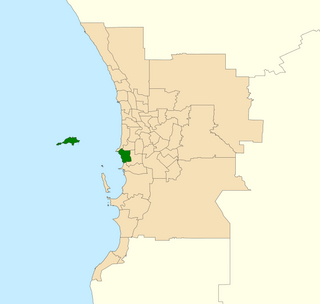
Fremantle is an electoral district of the Legislative Assembly in the Australian state of Western Australia.
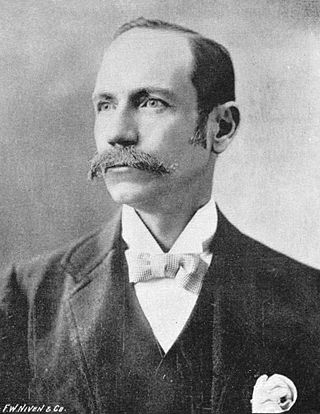
Sir Edward Horne Wittenoom KCMG was an Australian politician who served intermittently in the Legislative Council of Western Australia between 1883 and 1934, including as President of the Legislative Council from 1922 to 1926. He sat in the Legislative Council from 1883 to 1884, 1885 to 1886, 1894 to 1898, 1902 to 1906, and finally from 1910 to 1934. Wittenoom was a minister in the government of Sir John Forrest, and was also Agent-General for Western Australia between 1898 and 1901.
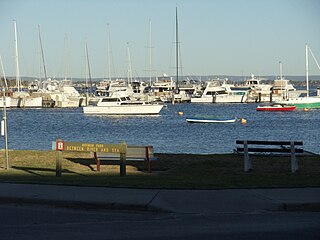
Mosman Park is a western suburb of Perth, Western Australia on the north bank of the Swan River in the local government area of the Town of Mosman Park. It was historically known as Buckland Hill (1889–1909), then Cottesloe Beach (1909–1930) and again Buckland Hill (1930–1937). From 1937 it was named Mosman Park, derived from Mosman in Sydney, the birthplace of Richard Yeldon, a member of the Buckland Hill Road Board. Mosman Park is now considered an affluent suburb, but prior to the 1970s was one of Perth's major industrial centres.
Arthur Dix Marshall was an Australian politician and sportsman from Western Australia.
The following is a list of members of the Western Australian Legislative Assembly between the 1897 elections and the 1901 elections, together known as the Third Parliament.
This is a list of members of the Western Australian Legislative Assembly between the 1901 election and the 1904 election, together known as the Fourth Parliament.
The Electoral district of West Perth was a Legislative Assembly electorate in the state of Western Australia. The district was named for its location immediately to the west of the central business district of Perth.
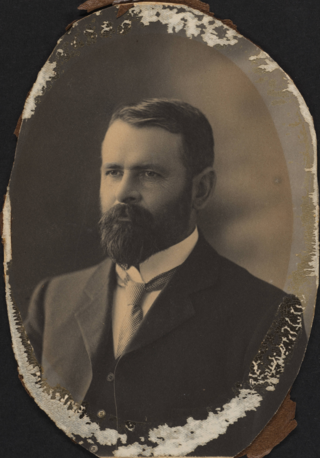
Michael Francis Cavanagh was an Australian architect, primarily known for his work in Western Australia from 1895 to the late 1930s.

Matthew Lewis Moss KC was a lawyer and politician who served in the Parliament of Western Australia on three separate occasions – in the Legislative Assembly from 1895 to 1897, and in the Legislative Council from 1900 to 1901 and again from 1902 to 1914. He was a minister in the governments of Alf Morgans (1901), Walter James (1902–1904), and Hector Rason (1905–1906). Moss was born in New Zealand and arrived in Western Australia in 1891. He left for England in 1914 and spent the rest of his life there, although he maintained connections with Australia, on two occasions acting as Agent-General for Western Australia.
James Price was an Australian politician who was a member of the Legislative Assembly of Western Australia from 1905 until his death, representing the seat of Fremantle. He served as a minister in the government of Newton Moore.

Samuel Mitchell was an Australian businessman and politician who was a pioneer of the mining industry in Western Australia. He served in both houses of the Parliament of Western Australia, as a member of the Legislative Council from 1884 to 1885 and a member of the Legislative Assembly from 1897 to 1901.
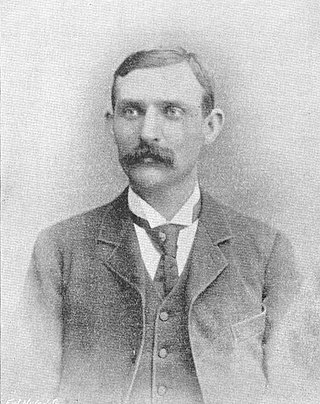
Joseph John Holmes was an Australian politician who served in both houses of the Parliament of Western Australia. A minister in both governments of George Leake, he was a member of the Legislative Assembly from 1897 to 1904 and again from 1905 to 1906, and later a member of the Legislative Council from 1914 until his death.
Barrington Clarke Wood was an Australian businessman and politician who served in both houses of the Parliament of Western Australia. A minister in the governments of Sir John Forrest and George Throssell, he was a member of the Legislative Assembly from 1894 to 1901, and then a member of the Legislative Council from 1902 until his death.
Francis McDonald was an Australian politician who was a member of the Legislative Assembly of Western Australia from 1901 to 1904, representing the seat of Cockburn Sound.
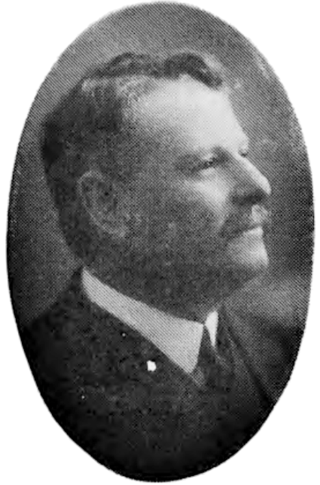
William Beattie Gordon was an Australian politician who was a member of the Legislative Assembly of Western Australia from 1901 to 1911.
John Edward Hardwick was an Australian businessman and politician who was a member of the Legislative Assembly of Western Australia from 1904 to 1911 and again from 1914 to 1921. He represented the seat of East Perth on both occasions.
Herbert Edward Wells was an Australian politician who was a member of the Legislative Assembly of Western Australia from 1930 to 1933, representing the seat of Canning. He was a perennial candidate, standing for parliament unsuccessfully on another six occasions.
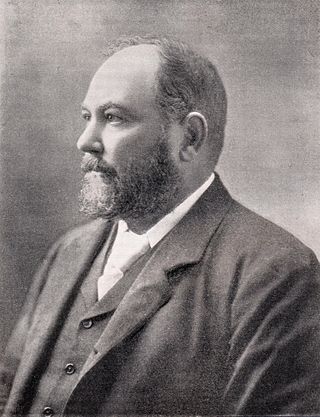
Elections were held in the Colony of Western Australia in December 1890 to elect 30 members to the Legislative Assembly. They were the first elections to be held for the Legislative Assembly, which had been created earlier in the year by a new constitution that granted Western Australia responsible self-government.

Elections were held in the Colony of Western Australia in June and July 1894 to elect 33 members to the Legislative Assembly. Less than half of the seats were contested and virtually all campaigns were fought on local issues, although a few candidates were endorsed by extraparliamentary organisations. The election presented no threat to the government of Sir John Forrest, but its aftermath saw the establishment of a credible opposition for the first time, led by George Randell.
This page is based on this
Wikipedia article Text is available under the
CC BY-SA 4.0 license; additional terms may apply.
Images, videos and audio are available under their respective licenses.









